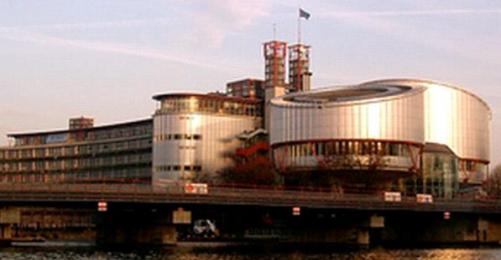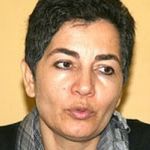The European Court of Human Rights (ECHR) celebrates its 50th year after its foundation in 1959. The ECHR gave an overview about the cases tried before the European court between 1959 and 1 January 2009 and announced a "pride report" for Turkish courts.
50. kuruluş yıldönümünü kutlayan İnsan Hakları Mahkemesi (AİHM), kurulduğu 1959 yılından 1 Ocak 2009 tarihine kadar "süren yargılamalar" ile ilgili durumu aktarırken Türkiye yargısının "gurur karnesi"ni de açıkladı.
The ECHR filed its first decision on 14 November 1960 regarding "Lawless-Ireland". On 18 September 2008 the court decided its 10,000th case. Since 1 January 2009 the court has 97,300 application files to deal with. Half of these cases are concerned with complaints from Turkey, Russia and Romania.
11.4 percent of all ECHR files are from Turkey
Applications from Turkey account for 11.4 percent of all ECHR cases. 47 countries with a total population of 800 million people are members of the European Council. Within this group only Turkey fulfills a ratio of 11,300 complaints out of a population of 70 million people.
The ECHR accepted 45,000 cases between 1955 and 1998. After 8,400 applications were filed for the year 1999, the number of cases increased to 49,900 last year.
Turkey: 1676 out of 1939 cases concerned with violation
During the last 50 years the ECHR took decisions on behalf of 47 countries. 1,953 of these cases were related to Italy, 1,939 to Turkey, 740 to France and 643 cases were related to Russia. Turkey became a member of the European Human Rights Convention in 1954. 1,676 out of 1939 cases brought to ECHR by Turkey were concerned with violations of the Convention. Only 37 files were decided against the accusation of violation. A total of 11,085 petitions were decided not to be accepted.
Only 37 out of 1939 decisions did not fulfill violation accusations
Out of a total of 1,939 decisions related to violation, 1,676 cases were decided to violate at least one article of the Convention. 204 cases were resolved amicably or with a similar kind of solution. Only 37 cases turned out not to have violated any article of the Convention. This situation points out the "dramatic" situation regarding trials in Turkey. This is also confirmed by a number of 2,725 decisions related to a violation of the "right to a fair trial".
With 170 cases Turkey made up for half of the 348 cases related to violating freedom of expression. One fifth of all decisions related to the violation of the right to a fair trial also go on the account of Turkey (531 out of 2,725). Out of a total of 48 cases concerned with torture in custody, prison and locations of detention, 22 cases come from Turkey.
Investigations into torture
147 out of 417 cases related to "inhumane treatment" concerned cases form Turkey as well as 66 out of 146 decisions that were made upon "violating the right to live".
Turkey was concerned with120 out of 233 investigations related to disregarding the right to live. Including the police and the judiciary, this must be seen as the most serious indicator for the current investigation system.
DGM, OHAL, TMY, TCK and RTÜK's laws and penal codes cause the problems
The ones who are hoping to benefit from the unlawfulness created by the State Security Courts (DGM), the State Emergency Region (OHAL) Laws, Anti-Terror Law (TMY), the TurkishPenal Code (TCK) and the Radio and Television Supreme Council (RTUK), the ones insisting on the continuation of these policies the ones represented by the "judiciary power" are responsible for this bitter record
Bu acı rekorun sorumluları, Devlet Güvenlik Mahkemeleri (DGM), Olağanüstü Hal Bölge (OHAL) Yasaları, Terörle Mücadele Yasası (TMY), Ceza Yasası (TCK) ve Radyo Televizyon Üst Kurulu (RTÜK) Yasası'nın yol açtığı hukuksuzluklardan medet umanlar - hope for help from - bu politikaların sürdürülmesinde ısrar eden, "yargı gücü" gibi, şiddet politikalarına razı olanlardır compliance acceptance.
On which conditions do we have to base these results? Undoubtedly, on the partisanship of our police, prosecutors and judges protecting the government by obstructing the citizens' means to seek for justice. Referring to the demands of international law, the ECHR occasionally voices criticism on insufficiencies. If this review would be done more frequently, it would still continue for some time to be an important channel to find consolation for the ones who seek for justice in Turkey. (EÖ/VK)



















